Word count: 0 Step count: 9704
The light in the hall outside our room stopped working some time yesterday, meaning that we had to use a flashlight to get down the stairs to breakfast, but nobody seemed to notice. For this and other reasons, we thought we might be alone in the hotel but there were two middle-aged British ladies at breakfast, and they said a friend of theirs had tried to book and been told it was full. (?) Certainly there were many more rooms and tables than we saw people. Maybe they only staff up to a certain level out of season?
Bread rolls here are long and narrow (I keep thinking they’re bananas), rather hard, and tightly curled inside, like croissants though not so rich. If you get a hot dog from a street cart, they spit one of these rolls lengthwise on a 1″ diameter spike and then put the sausage in the hole. I broke a roll open at breakfast and suddenly felt the physicality of the old expression “to break bread with someone” for the first time…
“Letni” (summer), seen often on signs, seemed vaguely familiar and I couldn’t figure out why… until I realized it’s Intel spelled backwards.
For our first stop this morning, we visited a stone circle near the town of Holasovice. I thought it was fascinating until we discovered that it was built by hippy-dippy neo-pagan “psychotronic technicians” in 2008. Nuclear reactor cooling towers on the horizon provided an interesting contrast. Next we visited Holasovice itself, with its “Farmer’s Baroque” village green. This is what a typical village square would have looked like in the mid-1800s, with its fish pond, frogs, scale for carts, tiny church, and enormous maypole. (Okay, that last would only have been there in certain months of the early 1800s.)
Next we went to Prachatice, with its fancy-pants medieval town square (they had a lot of money and power back in the day — salt traders from Salzburg were required to stop here, by royal decree) and National Museum of Czech Puppets and Circus. There we saw a great collection of puppets both old and new (including a family puppet theatre with its own painted orchestra pit, a king and queen very reminiscent of the ones from Mr. Rogers’ Neighborhood, and many many devils) and quite a bit of historical circus and magicians’ equipment (including a life-sized wax mermaid who breathed).
We considered stopping for lunch in Prahatice, but pressed on to Pisek, where Monika inquired of a local as to what might be open on a Sunday and we were directed to U Reineru (The Reiners’). Their English menu had a sense of humor, including sections labeled “All Breaded Up and Fried in Oil” and “From a Bull or a Cow, or maybe from a Hog” (I’m pretty sure these were deliberate, not errors). I ordered the “Reiner Cutlet” because I figured that if they put the family name on it, it’s probably good. Also ordered spinach, because, hey look, a vegetable! Took forever to arrive, but it was good when it did: breaded fried pork cutlet with ham and cheese inside and more cheese on top. Num.
I realize that everything I’ve been eating in Europe is delicious because I’ve been allowing myself to order dishes prepared with copious quantities of The Miracle Ingredient. (“Fat! It makes everything taste better!”) God knows how much weight I’ll have gained by the time we get home (4-7 miles of walking every day will help, of course) but I’m confident I’ll be able to get back on the eating-right horse and get in shape fairly quickly. Well, after Wiscon, anyway.
Pisek has an excellent museum with an eclectic collection of regional history and prehistory, a Gothic hall with the original black tile floor, a lapidarium of local stones, and — for some unknown reason — an extensive collection of coffeemakers. It’s a good thing we had Monika because the text was all in Czech; also, she was able to give us some essential background info. We gave the museum a “quick canter,” as suggested by the Rough Guide, and it was well worth it.
Drove to Prague, said goodbye to Monika and Peter, and checked into Hotel Petr (room quite small, otherwise nice). Walked a couple blocks to the nearest Metro stop, where we bought transit passes and looked in a bookstore for a good restaurant guide, since we’d found no Prague restaurant app and Yelp doesn’t know about this place. (TripAdvisor has some info but the app is not very well designed.) The Time Out book we bought agreed with other info we’d seen that Bar Bar, an artsy bar and restaurant, was good, so we took the tram two stops to that. Cool artsy decor, nonsmoking area, menu with many vegetarian options, and in the men’s room I used a urinal identical to Marcel Duchamp’s infamous “Fountain,” the like of which I have never before seen in the wild. Kate had tagliatelle with zucchini, sun-dried tomatoes, arugula, and capers; I had ratatouille with grilled polenta. Vegetables, yum.
After dinner we returned to the room to plan out our time in Prague. Tomorrow, I think, we will do laundry. Oh, the adventure.
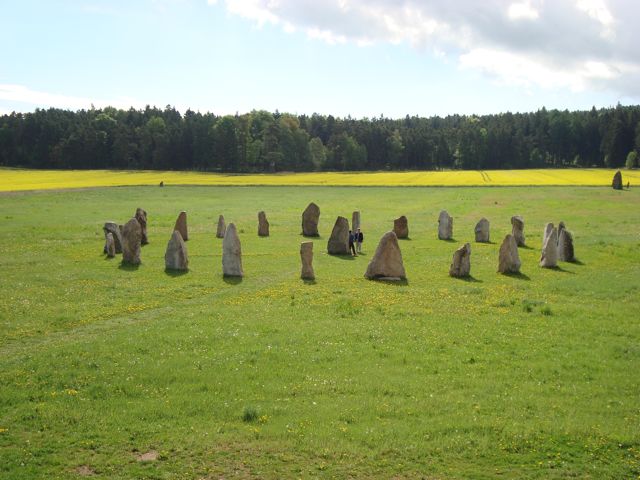
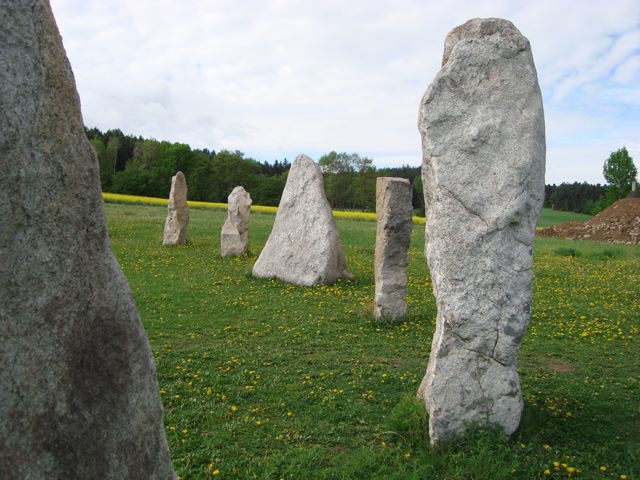








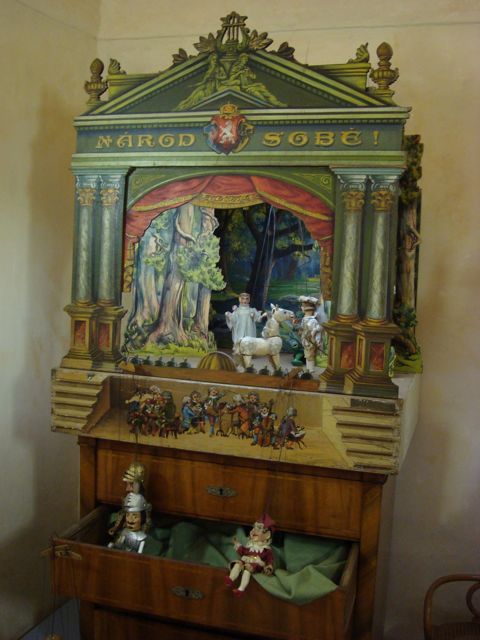
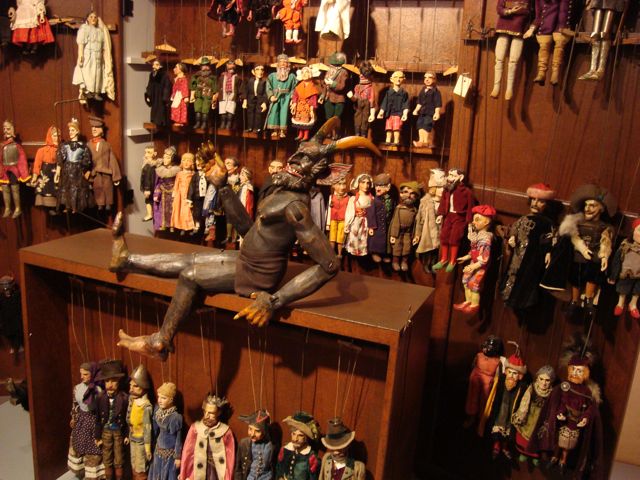


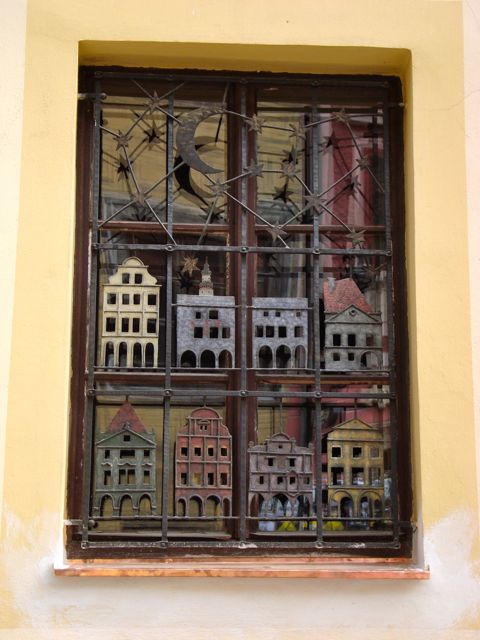



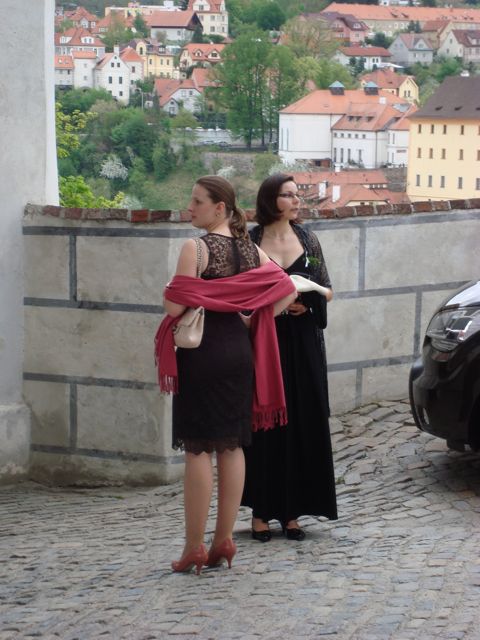
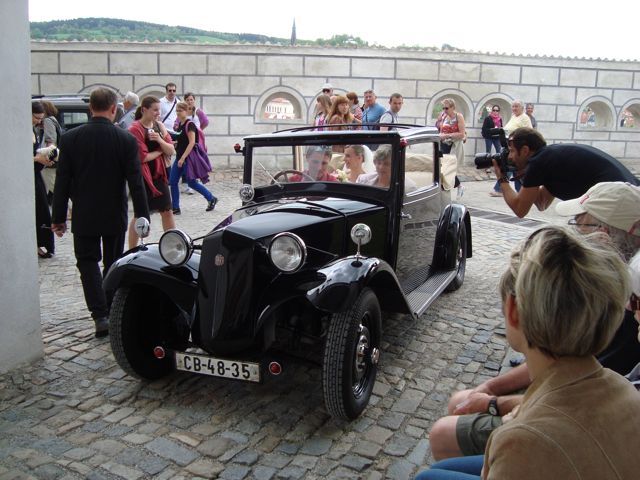


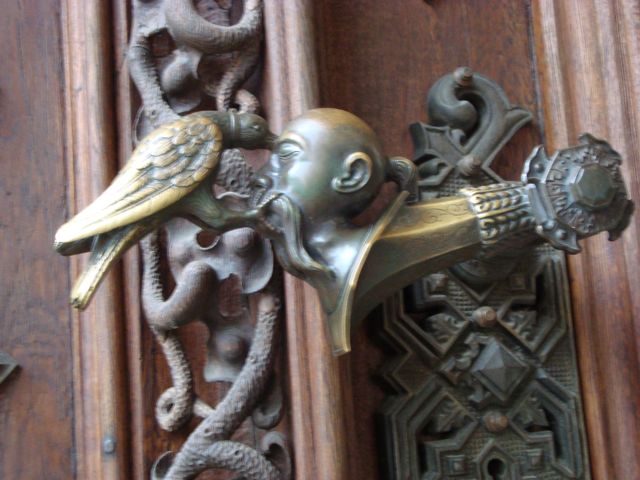
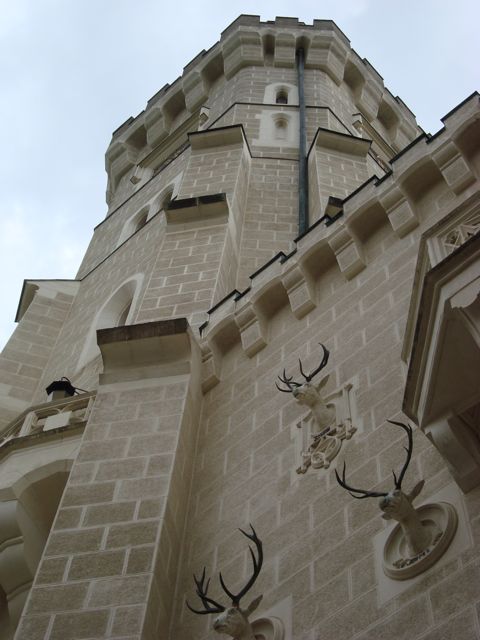
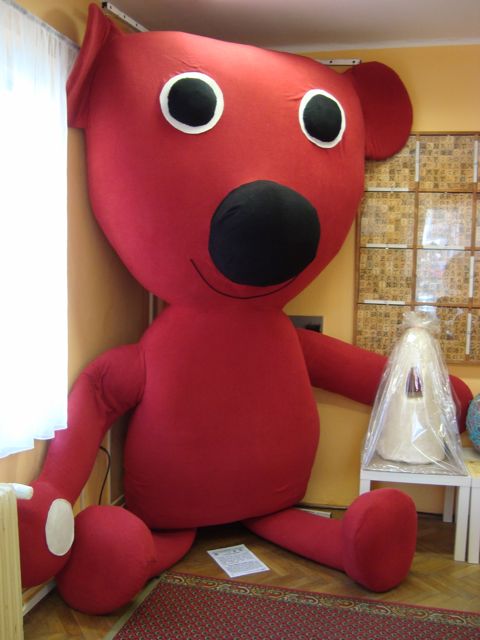
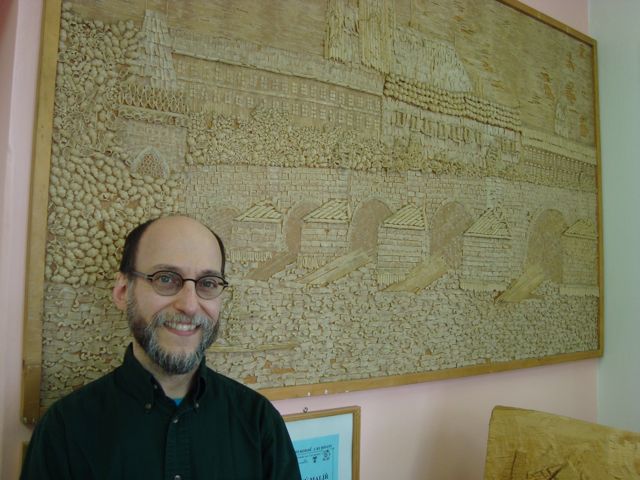
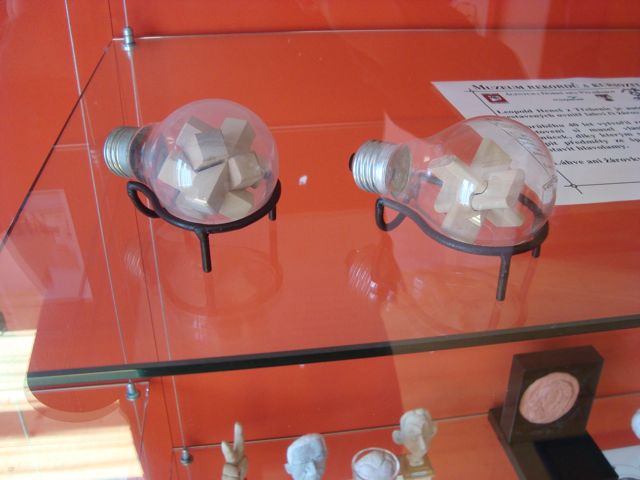
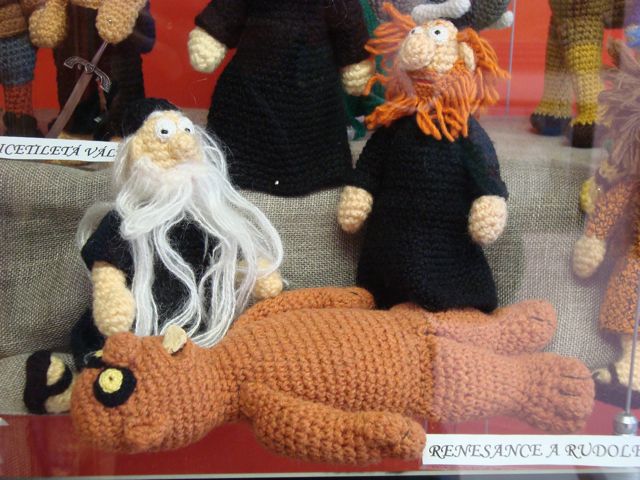

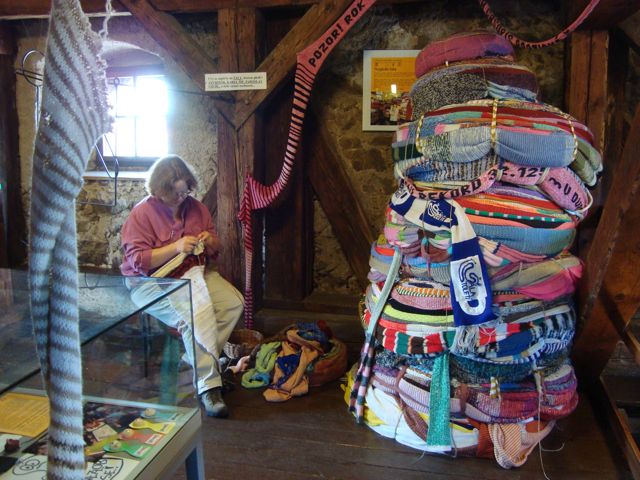

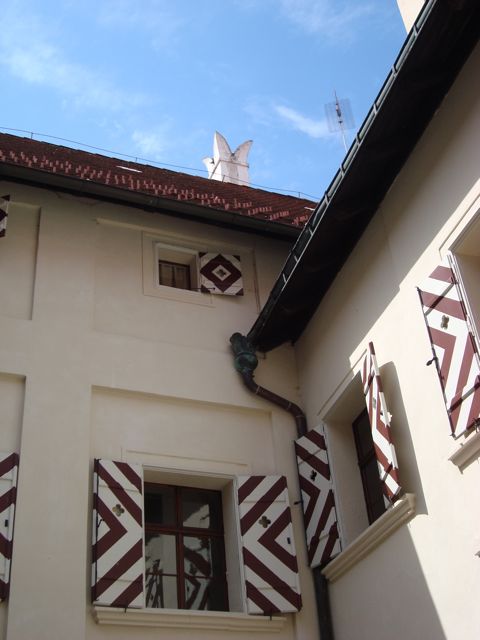
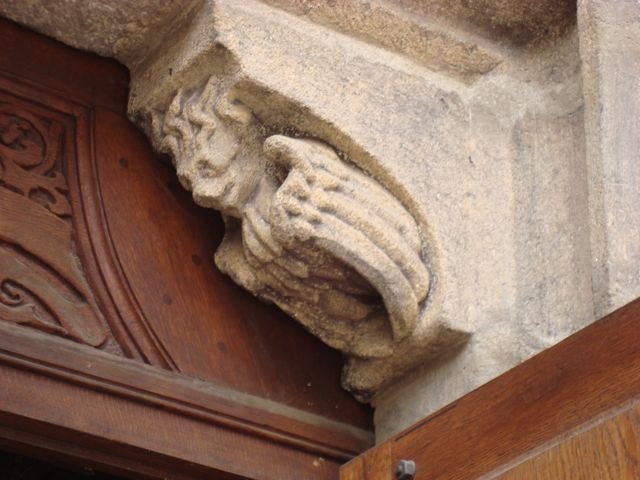

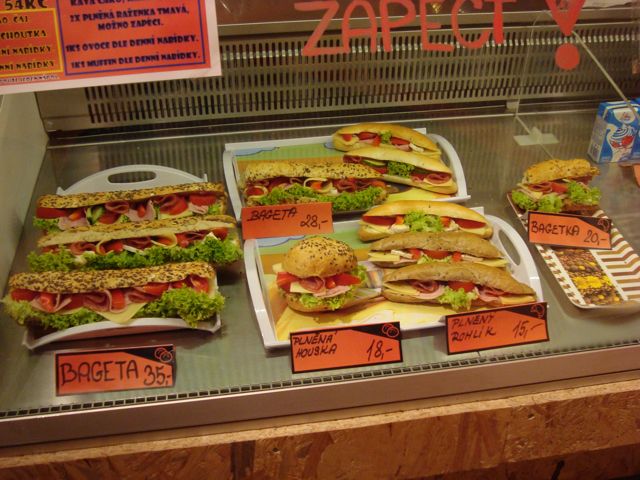
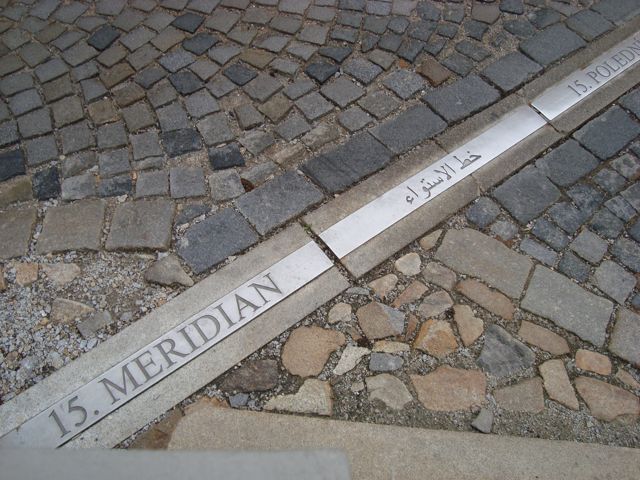

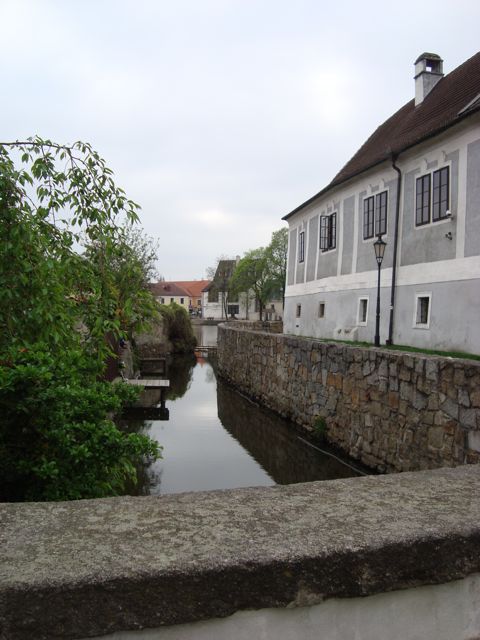


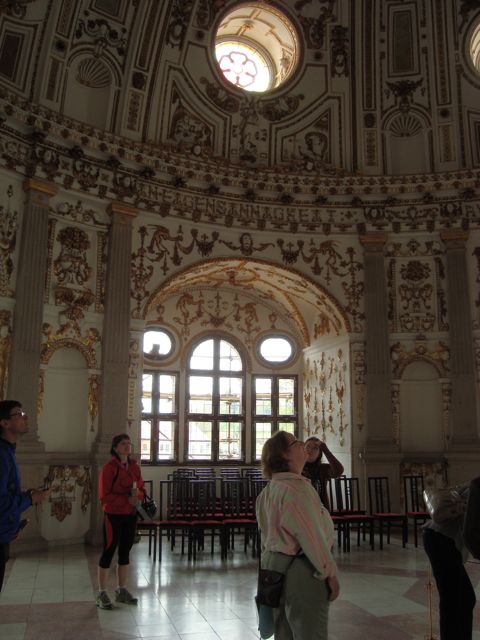

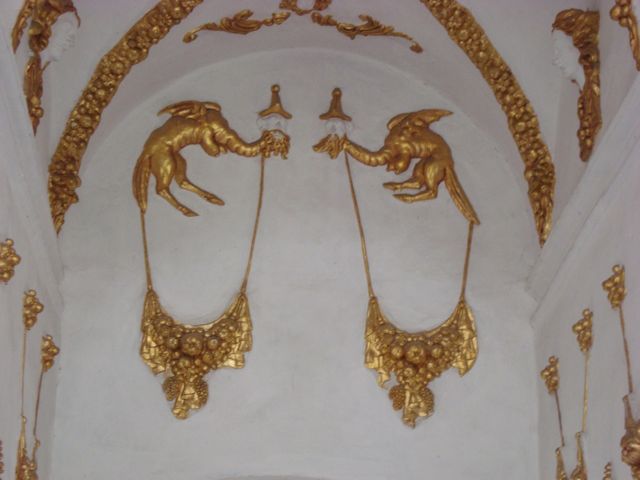
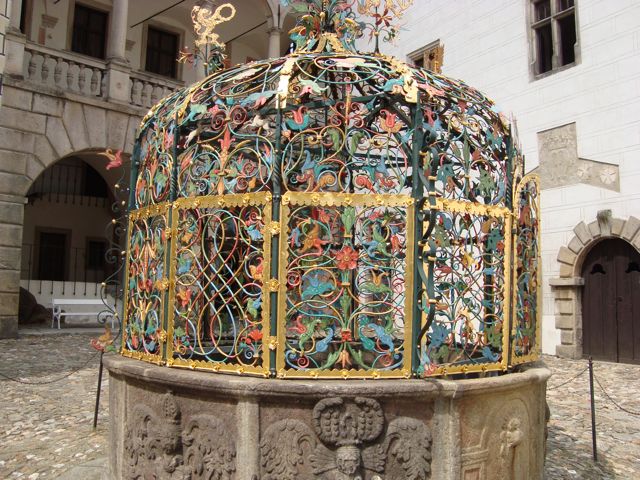
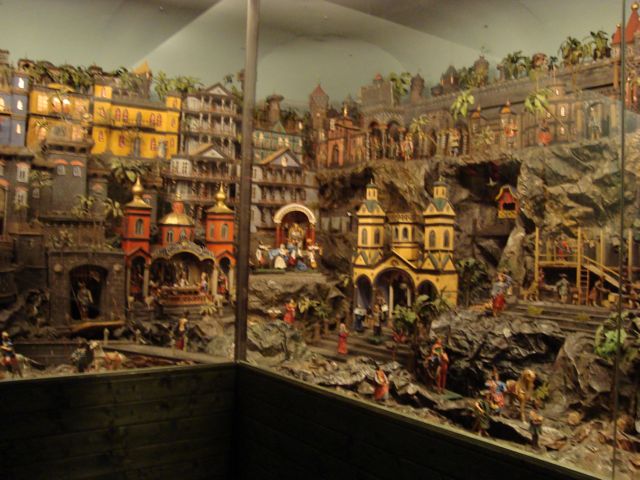

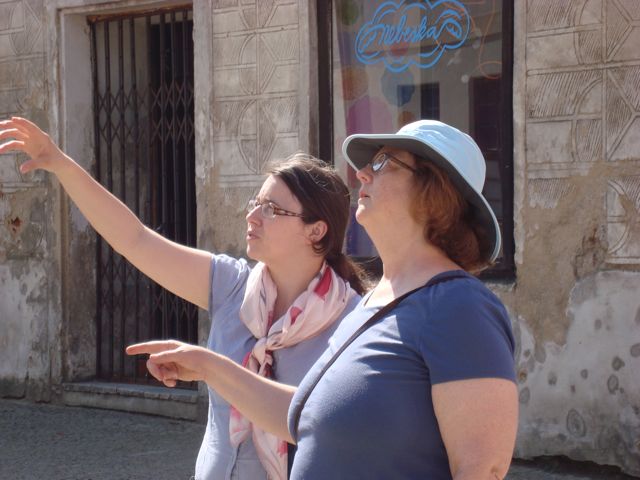


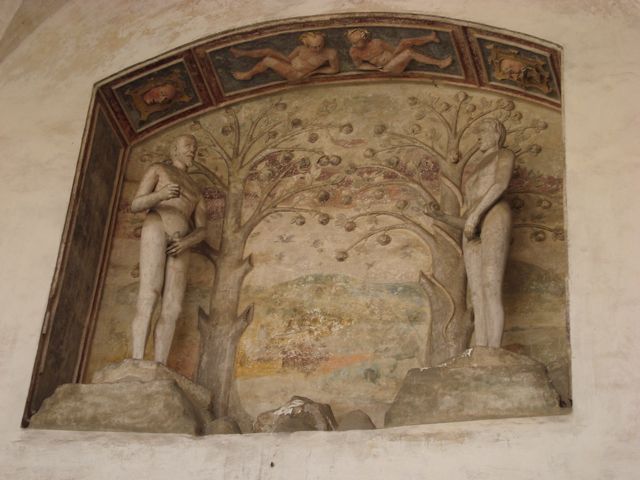
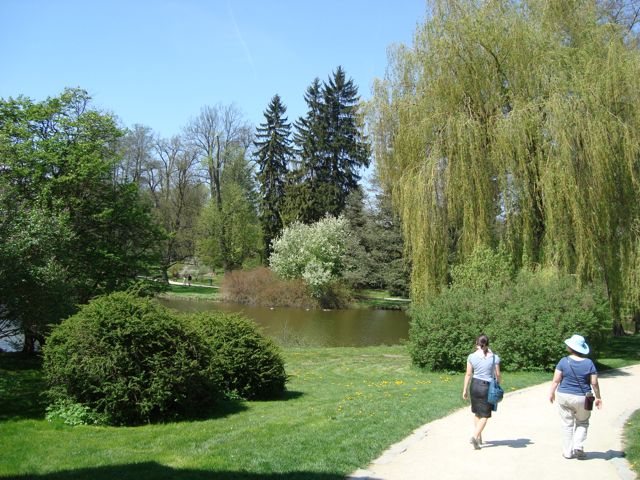

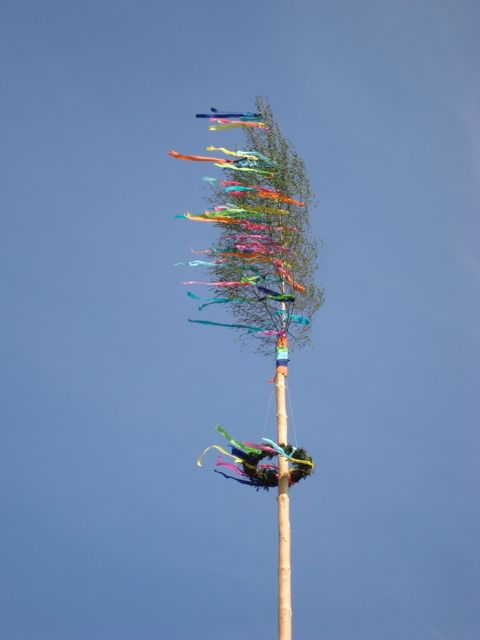
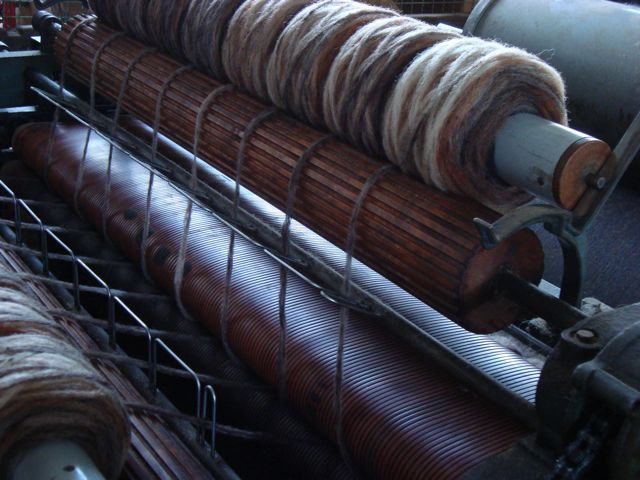
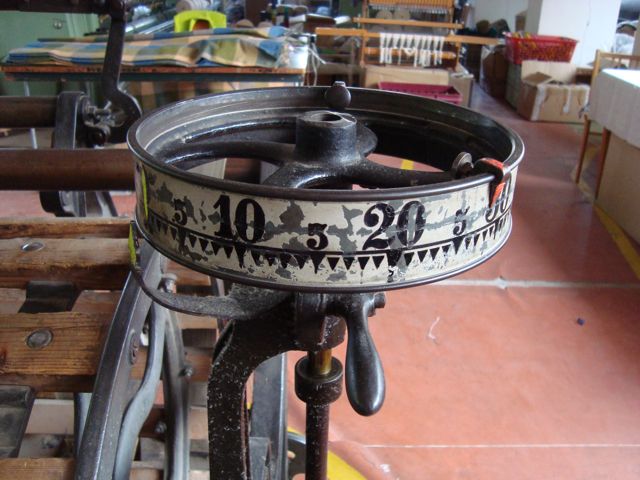
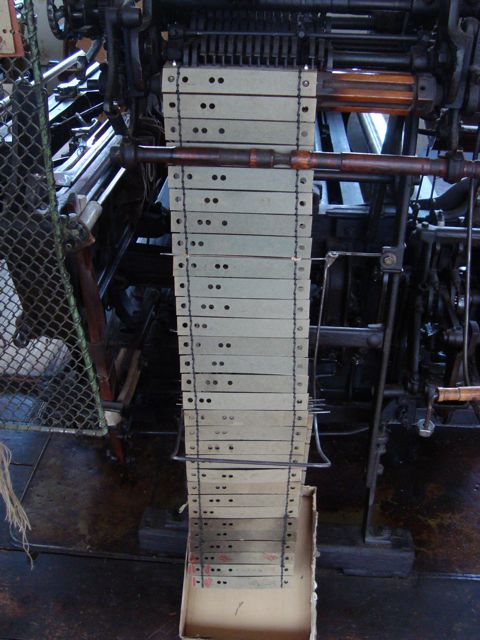

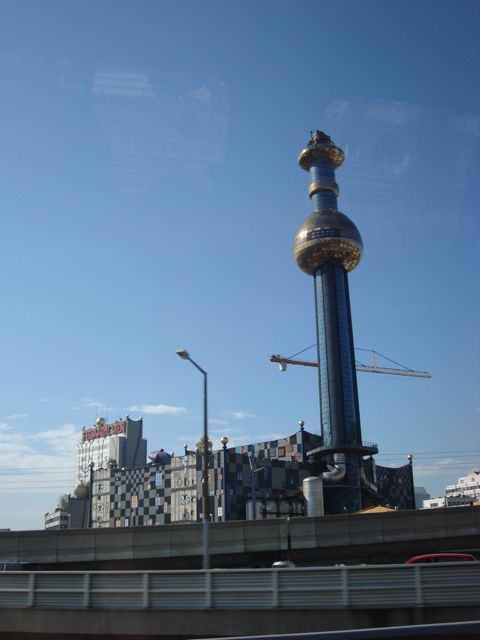








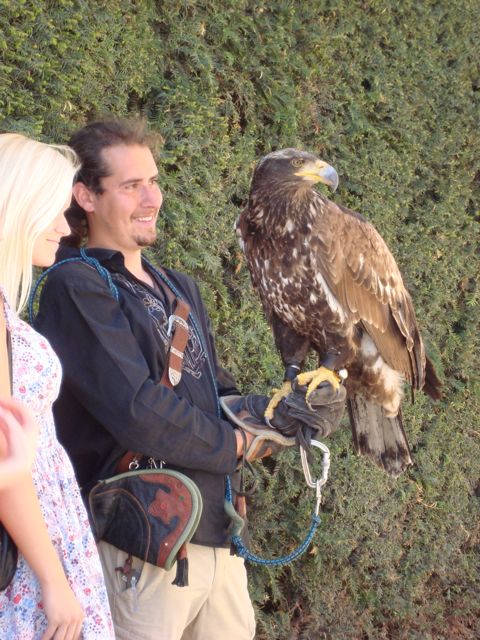



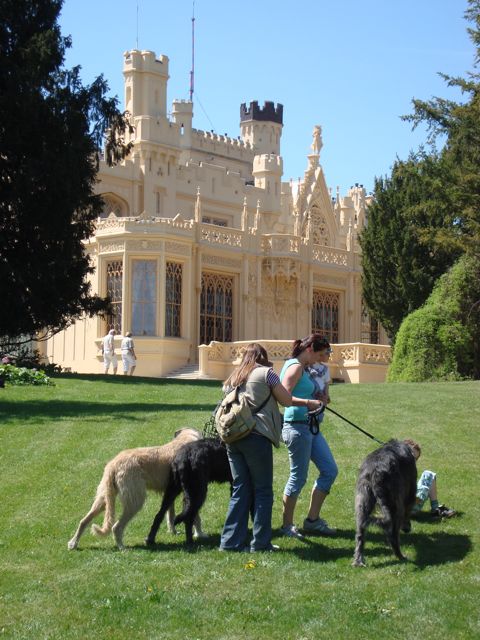
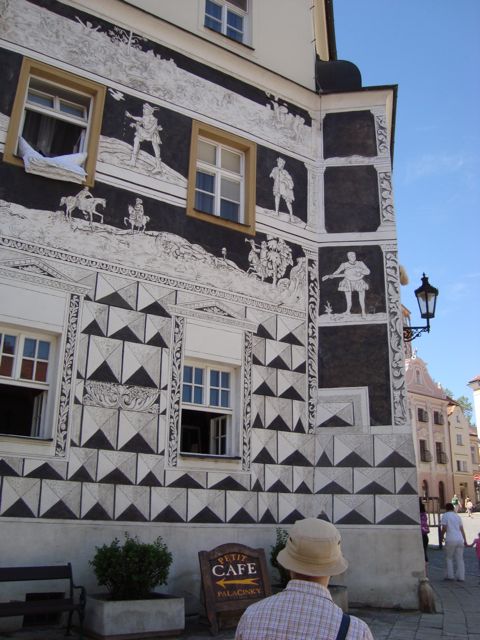





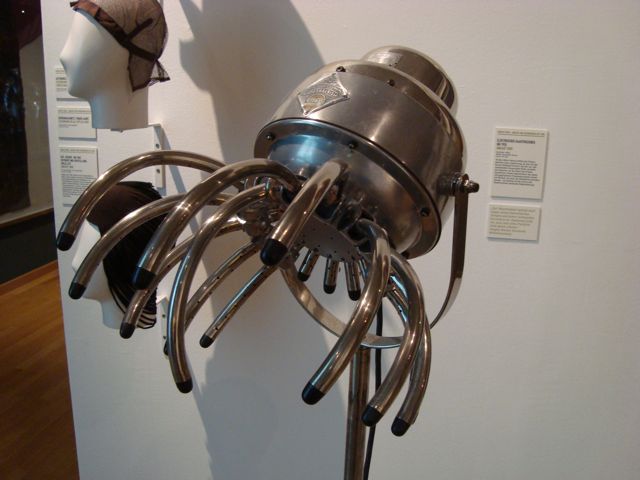
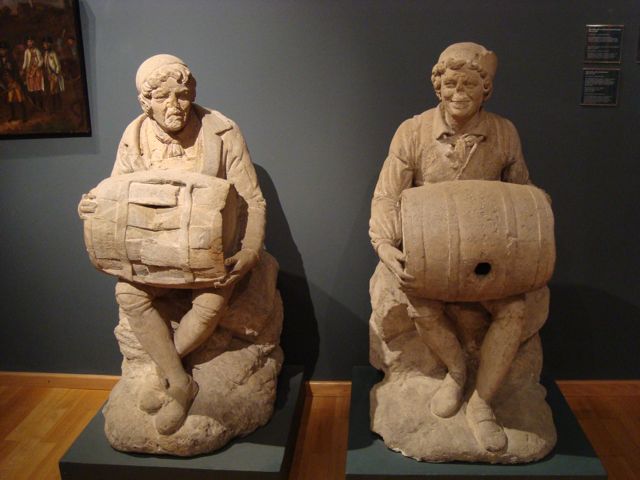
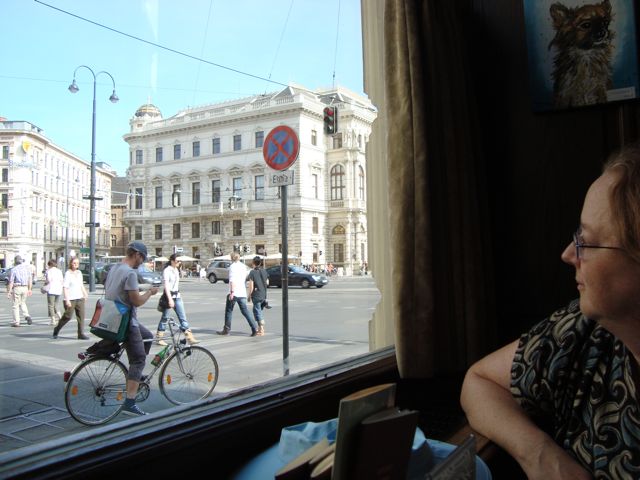
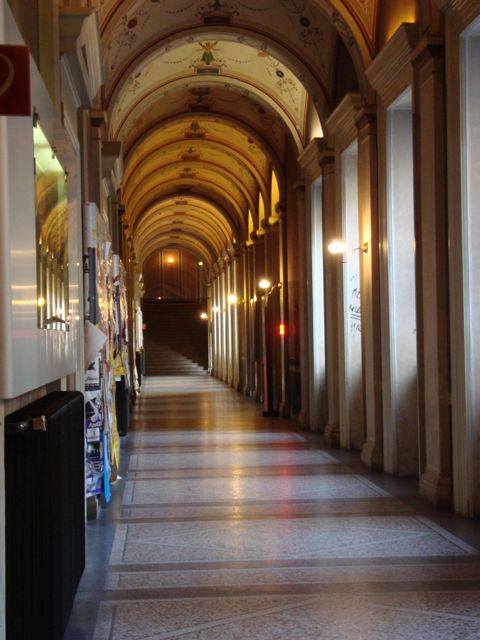

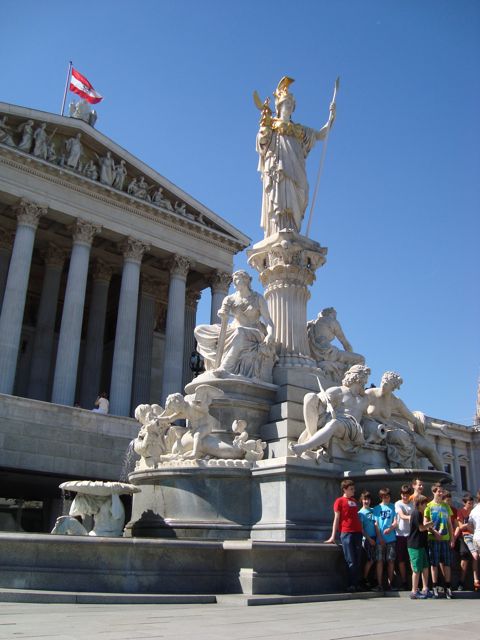

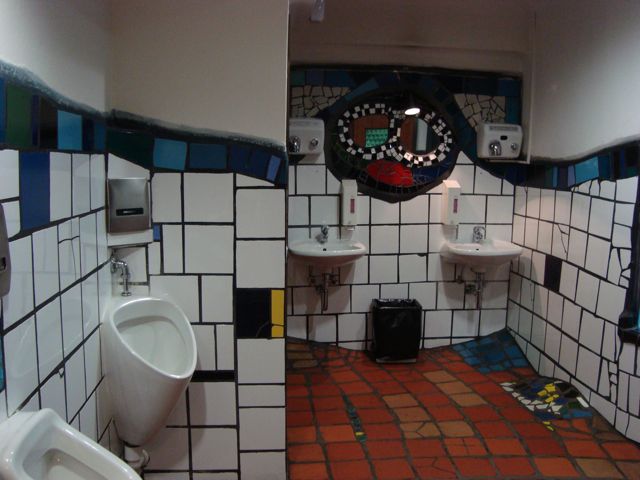

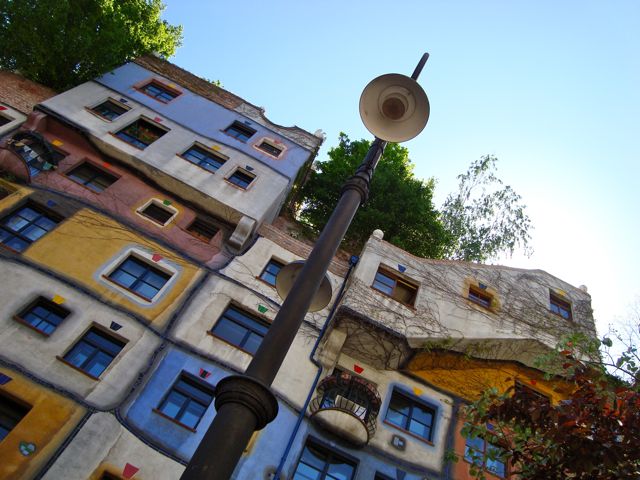
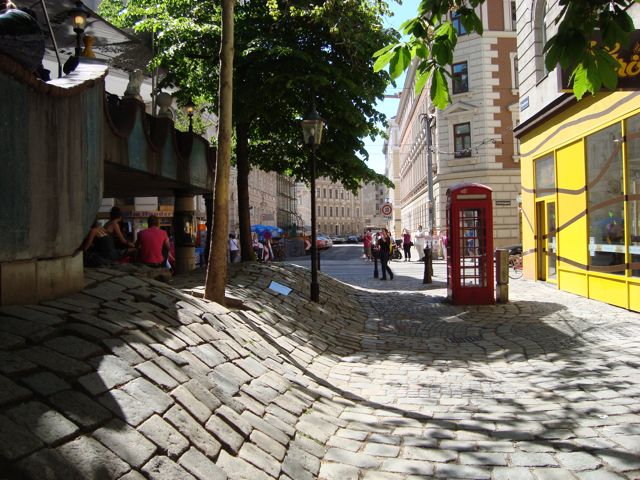
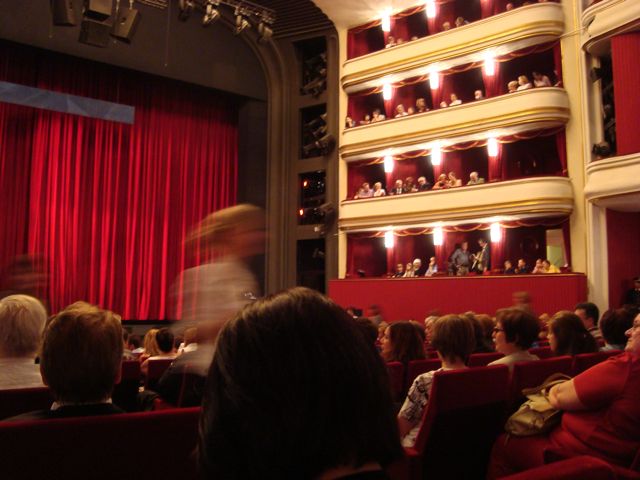
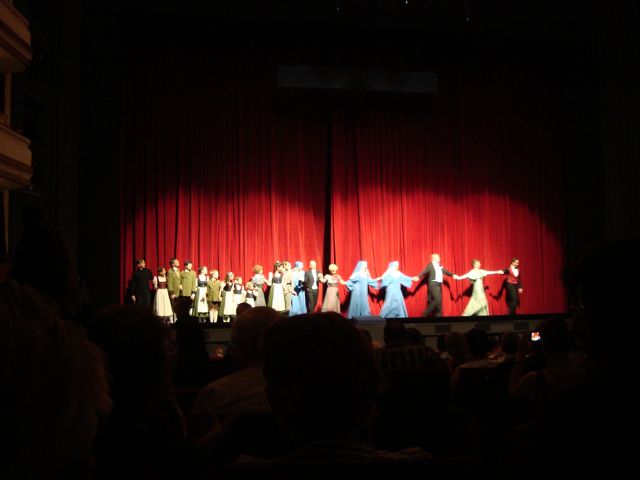
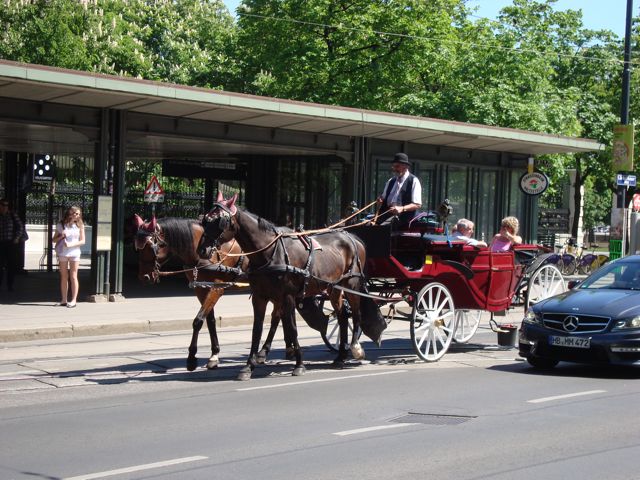
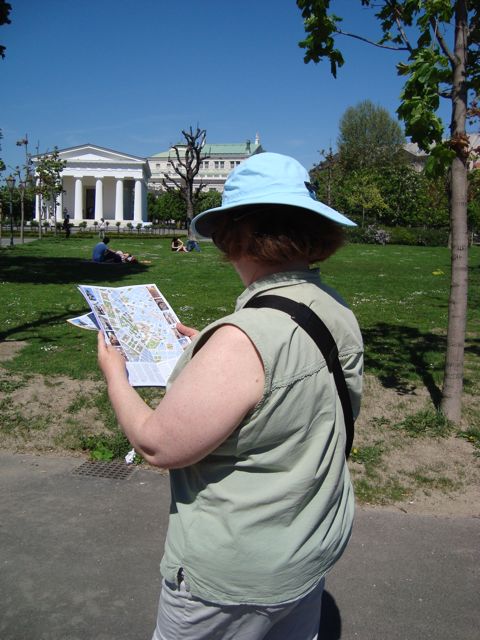





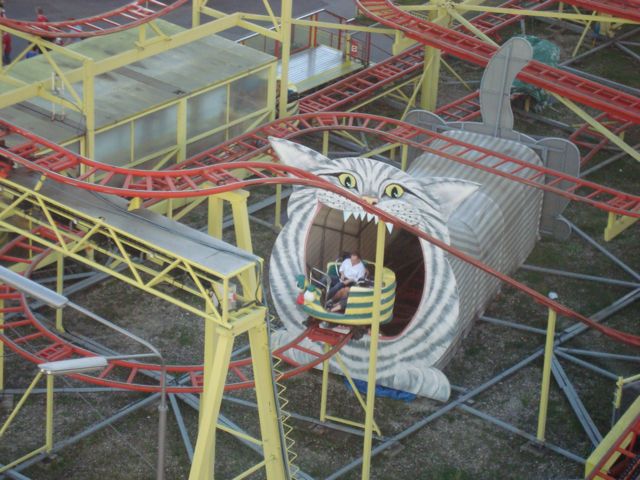
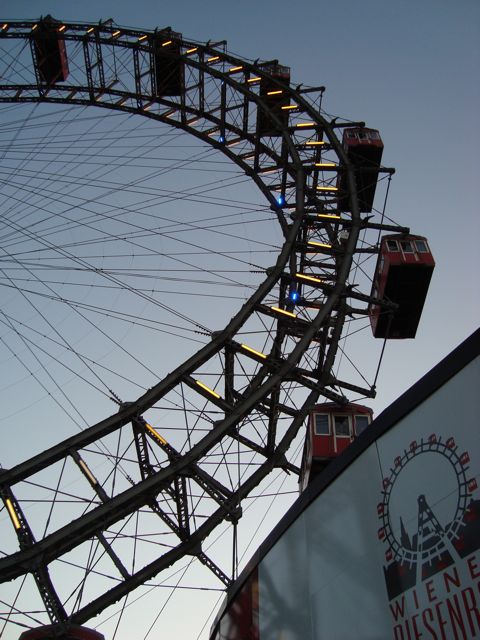
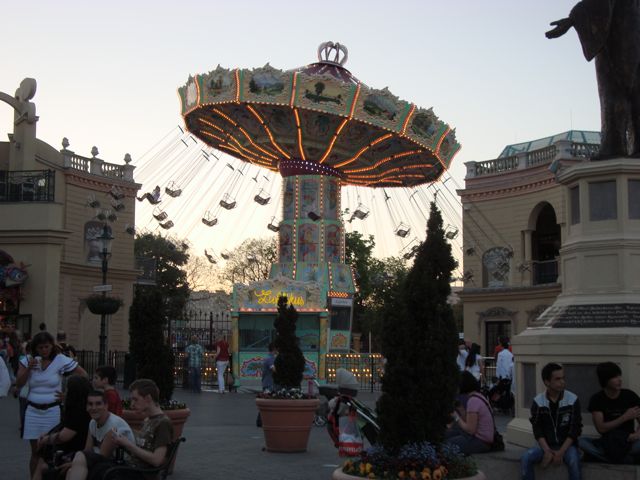


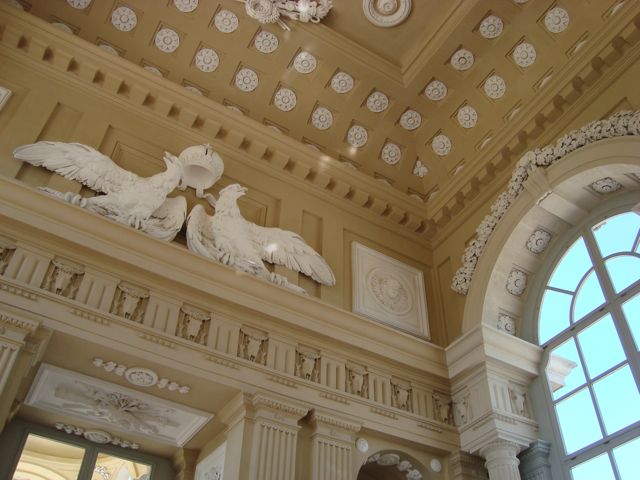





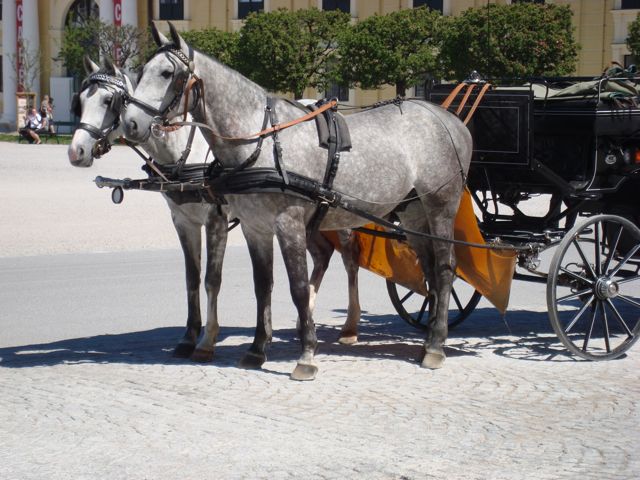

Recent Comments